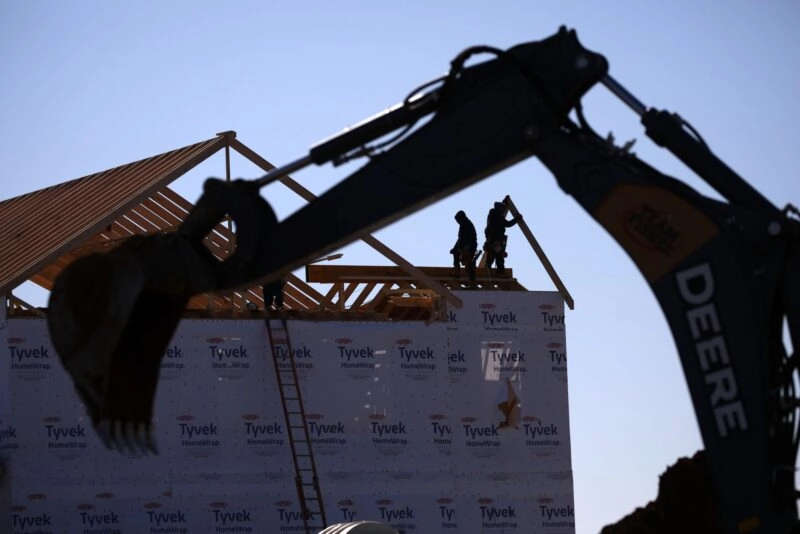US Housing Starts Decline to Lowest Level Since Early 2021

(Bloomberg) — New US home construction fell in July by more than forecast to the slowest pace since early last year as builders adjusted to a pullback in demand and a pickup in inventory.
Residential starts dropped 9.6% last month to a 1.45 million annualized rate from a revised 1.6 million pace in June, according to government data released Tuesday. The median forecast called for a 1.53 million pace.
Applications to build, a proxy for future construction, declined 1.3% to 1.67 million.
Starts of one-family homes were the weakest in more than two years, the report showed. After a pandemic-related housing boom forced builders to scramble to build enough homes to satisfy demand, high mortgage rates, elevated inflation and a deteriorating economic picture are now tempering sales. That’s left builders with a sizable number of unsold properties.
The outlook continues to deteriorate. A report Monday showed homebuilder sentiment slid for an eighth-straight month in August, marking the worst stretch since 2007.
While Home Depot Inc. on Wednesday reported better-than-expected second-quarter earnings, the home-improvement retailer also said that customer transactions continued to fall. Home Depot said transactions dropped 3% from a year ago.
Prices for commodities like lumber have eased in recent months, though builders continue to struggle to fill open positions, especially more skilled roles. Two-thirds of construction firms reported few or no qualified applicants in a July survey of small businesses.
The government’s report showed single-family housing starts decreased 10.1% to an annualized 916,000 rate, the slowest since June 2020. Permits for one-family dwellings dropped 4.3% to a two-year low. Meanwhile, construction of multifamily dwellings fell to 530,000 in July.
Existing-home sales for July will be released Thursday, followed by new-home purchase data next week.
Do you think inflation in the US has peaked? This week’s MLIV Pulse survey takes a hard look at prices. Please follow this link to share your views.
More stories like this are available on bloomberg.com.
©2022 Bloomberg L.P.









